- About
- Membership
- Resources
- Awards
- Events
- Get Involved

We congratulate the 2024 NABT Teaching Award Recipients and are honored to recognize their achievements.
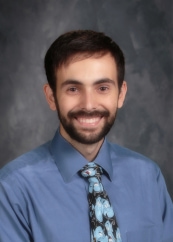
Frontier Senior High School, Buffalo, NY
Mike is a high school teacher in his seventh year of teaching. He has a BS in Biology, an MSEd in Science Education, and an MS in Genetics, Genomics, and Bioinformatics. Mike strives to have a very hands-on class, developing somewhat of a “fun and over-the-top” reputation with the labs and activities that he has developed. Outside of the advanced science courses he teaches, he works with students in two science-based extracurriculars: the Ecology Club, where students run initiatives to improve the school’s sustainability, and the NASA HUNCH Program, through which he has brought three teams to the finals to present their biomedical projects at NASA’s Space Center. Along with teaching at the high school level, Mike also adjuncts at a local university where he teaches lab-based courses.
Outside of teaching, Mike is involved with the Master Teacher Program of NYS, in which he ran a place-based PLT last year. He also has mentored dozens of teachers in mastery-based learning with the Modern Classrooms Project, developed a free online course on how to use neuroscience principles to teach students better studying methods, and is currently working with ACASE on the development of freely available NGSS-aligned assessments.
Missing participating in research, and noticing a concerning lack of scientific literacy and preparation among students, Mike decided to reapply for grad school. He is currently a student at the University at Buffalo, where he is a doctoral student doing research into pedagogical changes at the secondary level that can increase scientific literacy.
Personal Statement:
As the Phil Collins song from Tarzan goes, “in teaching you will learn.” Learning is in no way limited to our students, but rather does, and should, include our own learning as well.
I strive to continually improve my class each year. I am happy to be back in the position of a student and conducting research so that all of my future students might benefit from what I learn through this experience.

Onondaga Nation School, Nedrow, NY
David Amidon is a middle school science teacher at the Onondaga Nation School, part of the LaFayette School District near Syracuse, NY. A Central New York native, he spends his time with his family, watching his sons from the sidelines and helping with the Booster Club at their school. He earned his BA in Biology from SUNY Geneseo and MEd from SUNY Oswego.
David’s professional highlights include National Board Certification, selection to the New York State Master Teacher Program, serving as a global ambassador for the Space Academy for Educators program, and receiving NY’s Empire State Excellence in Teaching Award from the Governor’s Office. David is also a NASA/JPL Solar System Ambassador, a Certified American Meteorological Society (AMS) Teacher, and he sailed as a NOAA Teacher at Sea. He has presented Climate Change lessons for the National Center for Science Education (NCSE) many times, including the American Association for the Advancement of Science (AAAS) in Washington DC, and as an invited speaker for the Science Teachers Association of New York State (STANYS) annual conference. Finally, he also serves on the Board of Directors for the National Middle Level Science Teachers Association (NMLSTA) and the AMS Board on Pre-College Education, as well as a Subject Area Representative for STANYS.
In addition to earning the 2024 Ecology/Environmental Science Teaching Award, David has also received national teacher of the year awards from the American Geosciences Institute and the National Middle Level Science Teachers Association, the Outstanding Earth Science Teacher Award from the National Association of Geoscience Teachers, the Excellence in Science Teaching Award from STANYS, and is a two-time recipient of the Presidential Innovation Award for Environmental Educators from the White House Council on Environmental Quality and the U.S. Environmental Protection Agency.
Personal Statement:
In the classroom, I strive to engage my students by focusing on place-based and experiential learning strategies. If I can help connect what we are learning to what they see every day, then there is a better chance they will remember that down the road. My students have compared indigenous and modern food webs, created action plans to limit single use plastic, helped coordinate an environmental-themed concert with the local symphony, and accurately predicted the annual ozone minimum. I view science as more of a way to connect people to our world than a collection of facts. I wrote an essay for the National Center for Science Education’s (NCSE) “ClimateEdNow series (https://ncse.ngo/why-i-teach-climate-science) that sums up this thought:
As a middle school science teacher, I know that my daily routines and lessons will not be foremost in my students’ minds when they look back on their schooling. It is the nature of the job — there are lots of things fighting for the attention of a 13-year-old. When they come back and talk to me as seniors or college graduates, what stands out are the big-ticket items like projects and field trips, maybe some embarrassing moments, and the atmosphere of the class. The details from years ago are often fuzzy. But, importantly, the big ideas and connections we made are there. What sticks is the “Why?” and “How?,” not so much the jargon and the trivial. Climate Change is one of those big topics I hope they keep in the forefront of their minds down the road.
Through that lens, I also try to weave ecology/ environmental science in any topic I can. I am fortunate to be based in a fairly rural area very close to a larger city. My students go outside. We can see the forest on the hill outside my window and go to the creek in the back. We look for fossils and take pictures. When I can not make a local connection, then I seek out real and current issues that can evoke strong emotions. Images of phenomena such as hurricane landfall, garbage patches in the ocean, clear-cut rainforests, or wildfires capture attention and make the science real. Using these to introduce in-person events and projects helps reinforce what we are learning and devise solutions. I feel this engagement helps my students integrate what we are learning into their own active knowledge. That is why I strive to create unique learning experiences and try new ideas to keep our work current, interesting, and relevant.
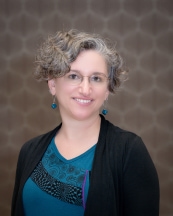
Smithsonian Institution, Washington, DC
Briana Pobiner, PhD, is a research scientist and museum educator in the Human Origins Program at the Smithsonian National Museum of Natural History and an Associate Research Professor in the Center for the Advanced Study of Human Paleobiology at the George Washington University. She is a paleoanthropologist who studies the evolution of human diets through fossils and fieldwork. After helping create the Hall of Human Origins at the Smithsonian, which opened in 2010, she now leads the Human Origins Program's public engagement efforts. In her evolution education research, Briana studies the teaching and learning of human evolution in formal and informal learning environments, and is particularly interested in creating educational materials and experiences that are welcoming to people of religious faith. She is the recipient of the 2021 American Association of Biological Anthropologists and Leakey Foundation Communication and Outreach Award in Honor of Camilla Smith and a 2021 National Center for Science Education Friend of Darwin award.
Personal Statement:
I fell in love with science through the story of how we became human, and I am passionate about sharing with others my enthusiasm for the narrative of human evolution, diversity, and unity that I find so captivating. I am constantly striving to make human evolution an accessible, engaging, and inclusive hook to entice students, teachers, and other public audiences to dive deeper into the nature and process of science. Whether it's creating human evolution-focused curriculum materials for high school biology classrooms and museum-based school programs, facilitating public programs and supporting volunteers in the Hall of Human Origins, or talking with visitors to our human origins traveling library exhibit, I'm grateful to have many opportunities to help shine light on the compelling mystery of how we know what we know about humanity's past.
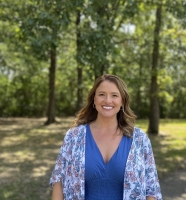
Fayetteville High School, Fayetteville, AR
Cameron Simpkins is a dedicated Biology educator with 14 years of experience teaching a variety of courses at Fayetteville High School (FHS) in Arkansas. Her classes range from ESL Biology to AP Biology, including the service-learning course, Advocates for Inclusive AP. She actively sponsors student organizations like the Asian-American/Pacific Islander Club and Science National Honors Society, fostering a culture of engagement and leadership.
Cameron has played significant roles in local educational leadership, serving on FHS Equal Opportunity Schools building advisory board and the Fayetteville Public School District Science Curriculum Task Force. Through the ARTeacher Fellowship, she brings arts-integration strategies to the Biology classroom, and her work in Arkansas with the Teach Plus Fellowship advocates for educator and student equity across the state. She has secured over $24,000 in grants for the FHS Biology department and mentors both student teachers and new staff members.
Outside the classroom, Cameron co-founded Youth Guardians of Conservation NWA, a non-profit that connects students with conservation opportunities. She organizes fundraisers supporting underrepresented youth in STEM research and is passionate about celebrating diversity in STEM education, promoting equitable access to advanced courses, and empowering students to be advocates for positive change.
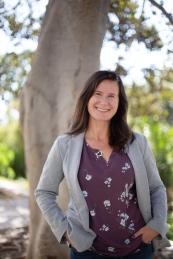
Pepperdine University, Malibu, CA
Dr. Krista Lucas is an Assistant Professor of Teaching of Biology at Pepperdine University, where she has worked since 2014. She teaches a variety of courses in the biology and sustainability programs at Pepperdine to both science and non-science majors. Her research is in the areas of science identity and scientific literacy, especially in college students who are non-STEM majors. Krista holds a Ph.D. in STEM Education from the University of California, Santa Barbara, a Master’s in Teaching - Secondary Science from the University of North Carolina - Chapel Hill, and a Bachelor's in Biology from Occidental College. Krista has worked in schools with all age groups, from volunteering as an elementary science teacher to teaching middle school life science, to teaching high school biology and AP Environmental Science. She was a member of the Curriculum Council in her neighborhood school district for two years and is an active volunteer at her sons’ school. Krista enjoys spending time with her husband and two sons at concerts and playing board games.
Personal Statement:
At the core of my teaching philosophy is the need for increased scientific literacy as a society and I strive to encourage this attribute in my students. In my experience teaching primarily non-science majors, I have found that this begins with students believing in their ability to think scientifically and using class time effectively to give them practice at honing this skill. My classes do not resemble the stereotypical undergraduate science classes. The bulk of my classes are composed of real-life scientific problems that students solve in groups, from determining how herbicides act during different parts of photosynthesis, to the mystery of the Tylenol poisonings in the 1980s, to the evolution of antibiotic resistance in Staphylococcus aureus.
In my classroom, students also develop the ability to research and discuss current scientific issues that can be applied to their lives outside of the classroom. I assign students a final project that requires them to find a science story in the news, investigate the primary literature, and make connections to course content. Through my research program I have learned that following their experience in non-majors introductory biology, students see themselves as science people and also believe that I see them as science people. This is also important as general education science is students’ last exit from the discipline, so providing them with opportunities to engage with scientific material and be scientists encourages them to be science people, while also improving their scientific literacy. Each semester I have the incredible experience of watching students have fun learning and gain confidence interacting with science.
University of Houston, Houston, TX
Dr. Abdalla Ibrahim Zanouny is an Assistant Professor of Genetics and Biology at the University of Houston. With over a decade of experience teaching at various institutions, including the University of Wisconsin-Madison, Madison Area Technical College, Minia University in Egypt, and King Saud University, Dr. Zanouny brings a wealth of knowledge and expertise to his role.
Dr. Zanouny employs a distinctive teaching approach that emphasizes engagement and fun. At the University of Houston, he has designed and taught Genetics courses centered on real-world applications. These courses empower students to analyze mutations and identify novel genes. His dedication to hands-on learning has resulted in courses that equip students with the fundamental skills necessary for conducting independent genetics research.
Beyond the classroom, Abdalla is a passionate science communicator. His YouTube channel and public speaking engagements serve as platforms to educate the public about complex scientific topics in a clear and engaging manner. Additionally, his involvement as a judge in regional, national, and international science fairs, as well as his active social media presence, showcases his dedication to sharing science with the community.
Dr. Zanouny is equally committed to nurturing the next generation of educators. He has actively participated in programs like TeachHouston, inspiring and mentoring aspiring teachers. Furthermore, his mentorship of graduate teaching assistants has provided them with the necessary tools and support to excel in their teaching roles.
Abdalla holds a Bachelor of Agricultural Sciences degree from Minia University, Egypt, a Master's degree from King Saud University, Saudi Arabia, and a PhD in Plant Breeding and Plant Genetics from the University of Wisconsin-Madison.
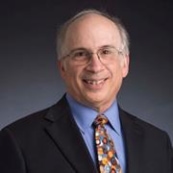
Oklahoma State University, Stillwater, OK
I grew up in New York City where I earned my B.S. and M.S. degrees in biology at Fordham University. After earning my Doctorate in Zoology at Indiana University Bloomington, studying social behavior in fish, I joined the faculty at the University of Maryland Eastern Shore where I conducted research on biological rhythms and foraging in crabs and taught marine sciences. In 1992, I joined Oklahoma State University as Coordinator for their Introductory Biology Course and focused my research in the area of Biology Education. In 2002, I earned the rank of Professor and was appointed as the first Edward E. Bartlett Professor of Pedagogy in Integrative Biology in 2017. At OSU, I served as Coordinator for the University Faculty Preparation Program and later as Co-Director for OSUTeach. I have authored or coauthored over 100 articles, book chapters, books, or manuals, been principal or co-principal investigator on grants awarded by NSF, HHMI, EPA, U.S. Forest Service and OSU and mentored over a dozen outstanding M.S. and Ph.D. students and countless undergraduates. My professional service includes NSTA Council Member, President of the Society of College Science Teachers (SCST), Chair of the NABT Four Year College and University Section, and President of NABT. My work has been recognized by several awards including NABT Four-Year College & University Biology Research in Teaching Award, SCST Outstanding Undergraduate Science Teacher Award, and OSU Regents Distinguished Teaching Award. I retired in January 2024 and spend time traveling with my wonderful wife to visit our son, daughter-in-law and delightful young grandchildren in Albuquerque, my son in Washington, D.C. or wherever we feel like.
I have taught most of my life, starting in third grade when I was asked to “lecture” about dinosaurs to all the other classes and grades. For most of my teaching career I was a pretty traditional lecturer. My first venture into active learning (it was not called that then) was when I was assigned to teach a large introductory environmental science class with 10 days’ notice, no textbook, no notes or syllabus from the normal instructor and just a book of readings. Student feedback and performance convinced me that my foray into collaborative learning and student-driven discussion was successful, but my department head thought it too chaotic and assigned me to teaching in the local prison where the students were not allowed to interact. So I became an increasingly entertaining lecturer and by the time I joined OSU I received great reviews. I was shocked then to learn from a colleague in secondary-science education (Jeff Weld) that I was shortchanging my students, throwing facts at them instead of teaching science as a process and helping students construct a conceptual understanding. I decided that good teaching is not what I do but what I get my students to do. Furthermore, students should learn scientific theories and biological principles in a realistic context that emphasizes the integrative nature of biology through collaboration, exploration, and introduction of new information as needed. Teaching should incorporate students prior knowledge, experiences, and identities. This has guided me through four major revisions of the introductory biology course I oversaw, progressively replacing the didactic terminology-laden lectures and pencil and paper laboratories I inherited with active learning, relevant scenario-driven theory sessions and an independent CURE laboratory in which students develop their own investigations and publish their work in a course journal. Along the way, I strove to encourage hundreds of teaching assistants and preservice teachers (with the help of my colleague Julie Angle) to adopt similar, research-based and inclusive teaching strategies.
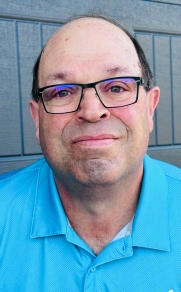
Mark is a native Coloradoan who has been a member of NABT since 1987. He earned his undergraduate degree from Colorado State University with a master’s degree from the University of Denver. He student taught and spent his whole teaching career at Broomfield high school. Mark taught AP Biology, A/P, APES and other courses. He also coached sports, was a class sponsor, score keeper for both basketball teams and an NHS co-sponsor. Mark was an adjunct instructor for the University of Colorado at Denver CU Succeed program. Mark has been recognized by students and peers with awards from the Local Masonic Lodge and the Morman church. He was recognized multiple times by the graduating class as being the most influential teacher.
The first NABT conference Mark attended was in Denver, Colorado, 1992 and was one of those “transforming experiences” in a career. He realized the importance of learning from others and attending good professional development. Mark was a regular attendee starting in the mid 90’s and started submitting presentations later in 90’s. In 2005. Mark received the OBTA award for the state of Colorado and 2006 I was selected President of the Colorado Biology Teachers Association (CBTA) as well as being the OBTA director.
In 2008 in Memphis, I was asked to attend a meeting (being CBTA President) and at this meeting I was told I was the point man for the 2009 NABT in Denver. I realized how my NABT experience was changing. I was no longer just an attendee, but I had service responsibilities at conference too. Over time after 2008, my service responsibilities changed as I became a Regional Coordinator and had the opportunity to be President in 2013. After my board tenure, I was appointed OBTA Coordinator and AP Section chair. I have served as an evaluator for several awards and have been appointed to several committees over the years.
Mark is AP Biology Consultant for the College Board and work with teachers over the summer. I also keep teachers from workshops and others up to date with periodic emails on updated information on curricular resources and PD opportunities. I feel it is important to give back to others as others have shared with me over the years.
My dad was regional solicitor for the Department of Interior and many of the trips we took were working vacations for him to Dams and National Parks. This helped develop my love for biology and develop my curiosity and passion for learning.
My vision was to help all students learn to be skilled critical thinkers, problem solvers, innovators and team players. I wanted to encourage all students to have a growth mind set and develop into life-long learners by providing a variety of opportunities during the year that will support the creativity and curiosity of all students. I used a variety of instructional strategies to meet the needs of all students.
Using inquiry, and other pedagogical sound strategies while, using relevant, meaningful and real-world science classroom experiences I hoped to prepare students to become scientific literate educated citizens capable of understanding and analyzing global issues.
Sponsored by NABT, Bedford, Freeman and Worth, and Donations
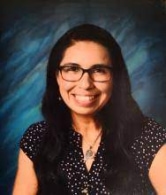
I am a high school science teacher at Rocky Mountain High School in Fort Collins, Colorado. Throughout my 17 going on to 18 years in education, I have taught Biology, Zoology, Environmental Science, Anatomy, and Physiology among other subjects including honors, advanced placement, and co-teaching. In 2018, I earned a Doctorate of Education in Organizational Leadership from California Coast University, a Master’s Degree in Science Education from Oregon State University, and a Bachelor's Degree in Biology from the University of Texas in Brownsville. I enjoy supporting students in science competitions, serving on committees, engaging in and presenting at professional development conferences, serving as the Region 1 Secondary Director for the Colorado Association of Science Teachers (CAST) and working on a contract basis with the National Geographic education team.
As a biology teacher, I aim to inspire students of all backgrounds and identities to see themselves as explorers and scientists as they learn about the natural world. Acknowledging the
importance of representation, windows, and mirrors, as well as being aware that the needs of our students do not start as they enter our classroom nor stop when they go home, is critical. I
strongly value diversity and believe it is important to acknowledge and celebrate it by making the classroom an inclusive and safe environment with the goal of empowering students. Every
year, I enjoy our journey as students are challenged to explore real-world issues while making connections to biological concepts, fostering curiosity and life-long learning. As a life
science teacher whose personal science experiences in the classroom were limited by socioeconomic factors and identity, my passion is grounded in creating equitable learning experiences that
cultivate an understanding of biology relevant to all students, both inside and outside the classroom.
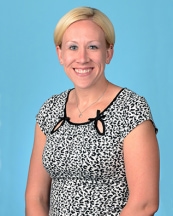
Cy-Fair High School, Cypress, TX
Anne Gill is a teacher in the Cypress Fairbanks ISD. She graduated from Texas A&M University where she received her Bachelor’s in Wildlife and Fisheries Science and has her master’s in Evolutionary Biology through the University of Illinois. She has been teaching for the past 22 years. She has taught Chemistry Honors, Aquatics, Anatomy and Physiology, Environmental Systems, Environmental Science AP, Environmental Science Dual Credit, and AP Biology. Anne has taught AP Biology for the past 19 years and has dedicated her time to learning as much as she can about the course.
Anne has spent many summers taking classes about AP Biology and now teaching the course material to other teachers and students. She is a consultant for College Board and works in the summer with AP Institutes, one-day courses for teachers and students, and has worked with the National Mathematics and Science Initiative doing consultant work for them for the past nine years concerning AP Biology. Anne has been an AP reader and table leader for the past 15 years.
Anne was awarded the local Wal-Mart Teacher of the Year in 2006. She was awarded the Outstanding Biology Teacher for the State of Texas in 2013, and the Wall of Fame for the Cypress Fairbanks that year as well. She also received the Alton L. Biggs Excellence in Biology Teaching Award in 2018. Anne is currently the Secretary and Treasurer for the Texas Association of Biology Teachers.
Teaching is more than a job, it involves guiding, inspiring, and challenging students to develop their knowledge, skills, and understanding. Working with a diverse group of young adults energizes me every day. They are kind, concerned, authentic, and want to learn. I get to help make a lasting impact on the students and foster their curiosity for science. By creating an engaging and supportive environment, I aim to empower my students to reach their full potential and become lifelong learners and lovers of Biology!
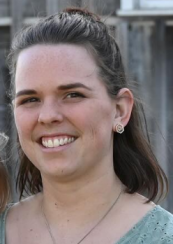
Whitko Jr./Sr. High School, South Whitley, IN
As an educator with eight years of experience, my journey has been deeply rooted in a passion for teaching and a commitment to fostering a supportive learning environment for my students. I spent seven years teaching middle school, developing a solid connection with my students, and honing my skills in creating engaging and inclusive classrooms. In my most recent year, I have specialized in teaching biology, which has always fascinated me, and I love to share it with my students.
I began my academic journey at Butler University, earning a bachelor's in biology and secondary education. This dual focus allowed me to deepen my understanding of the biological sciences while equipping me with the pedagogical skills needed to communicate complex concepts to young learners effectively. Seeking to further my expertise and leadership capabilities, I pursued a master's degree in education administration from Ball State University.
My teaching philosophy is centered on the belief that every student has the potential to excel when provided with the right tools and encouragement. I strive to make my classroom a place where students feel safe to explore, ask questions, and develop a genuine curiosity for the subject matter. I use a variety of teaching strategies, including technology integration, collaborative projects, and inquiry-based learning, to ensure that my lessons are engaging and effective.
Staying current with the latest advancements in education and biology is crucial, so I actively participate in professional development and educational communities. This continuous learning helps me bring fresh ideas and perspectives to my classroom, enhancing the learning experience for my students.
My goal as an educator is to inspire and empower my students, helping them realize their full potential. Teaching is not just a profession for me; it is a passion and a calling I am proud to pursue daily.
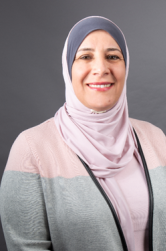
Saint Charles Community College, Saint Charles, MO
Dr. Ranya Taqieddin is an Assistant Professor of Biology at Saint Charles Community College (SCC) in Cottleville, Missouri. She earned her Bachelor of Dental Surgery and Master of Science in Public Health (Epidemiology) from the Jordan University of Science and Technology in Jordan. Later, she earned her PhD in Biology with a minor in Research Methodology from Saint Louis University in Missouri, where she was trained as a Biology Education Researcher and earned the Certificate for University Teaching Skills (CUTS). She is a certified Quality Matters (QM) Peer Reviewer.
Dr. Taqieddin has taught a variety of courses such as Integrated Dental Sciences, Human Biology, and Anatomy and Physiology. She has created a variety of unique courses, including an online human biology lab for which she developed interactive digital models to mimic students' hands-on learning experience. Inspired by the curricular recommendations of Vision and Change and her desire to integrate diversity, inclusion, and equity (DEI) to help students develop scientific literacy, she created two courses: an OER-based course called "Fundamentals of Health and Disease" and an interdisciplinary Honors course called "Humans, Science, and Medicine" that integrates course objectives of biology and English composition.
Her research interests include evidence-based integrative models in STEAM, integration of DEI in biology course design, and educational technology in curricular design.
Over the years, my approach to creating a more equitable and inclusive learning environment for all students has evolved from solely focusing on course design to a more comprehensive approach of outreach at the institution and community level. My goal is to facilitate the development of scientific literacy for every student by actively engaging them in contextualized learning experiences that are culturally relevant. This approach encourages students to think beyond the classroom and to engage in a learning experience that fosters creativity, collaboration, and real-world problem-solving skills. Universal Design of Learning (UDL) is a framework that is a fundamental part of my holistic approach to equitable learning. As a learning facilitator, I intentionally integrate Diversity, Equity, and Inclusion into the design of my courses by applying the UDL framework and research on innovative approaches that utilize interactive educational technology.
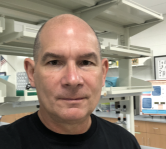
FCS Innovation Academy STEM High School
Bob Kuhn has been a public-school teacher in Georgia for over 25 years. He earned his BS and MS degrees at the University of Georgia in 1990 and 1993. Bob started teaching life sciences at Coile Middle School in the Athens-Clarke County School district and moved to Centennial High School in the Fulton County School district in 1999. At Centennial he taught primarily biology and AP biology for 22 years. Bob moved to Innovation Academy STEM High School in Alpharetta, Georgia in 2021 where he teaches Biotechnology Essentials, Biotechnology Applications and Biotechnology Research. In 2018 Bob started DNA Club, an non-graded independent biotechnology research club working on authentic long-term research projects. DNA Club has published 2 peer reviewed papers and served over 150 students in 60 projects.
My main concerns and goals as a teacher revolve around the question: How can I be better each day to increase student learning? I have found that providing meaningful biology storylines and experimentation, through which to introduce content and techniques, seems to work best. I want biology learning to make sense in context, and be a springboard for independent learning and projects. I hope that these goals help develop confidence, curiosity, questions, and knowledge students can use after my time with them.
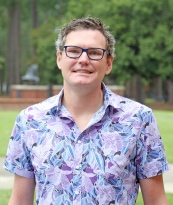
Piedmont Community College, Roxboro, NC
Cheston Saunders has over a decade of experience teaching science with the North Carolina Community College System. Cheston’s interest in two-year colleges began while taking community colleges during high school as he fell in love with the open-admissions policy of the NC community colleges. As a first-generation college student, the dual-enrollment program afforded him to opportunity to gain valuable college experience that later led to his completion of degrees in biology, chemistry, biology education and leadership. Cheston’s innovative curriculum activities and research have been published in The American Biology Teacher, The Science Teacher, Science Activities, Life Sciences Education, and the Journal of College Science Teaching. Presently, Cheston’s research in community college biology education is focused on two arenas: 1) using metacognitive skills to reduce student science anxiety and 2) increasing information literacy among biology students. Cheston routinely teaches courses in a variety of modalities and routinely provides conference presentations on methods for providing engaging online science instruction.
In my experience, the difficulties most students experience when attempting to learn science arise from incongruences between the instructor’s teaching methods and the student’s learning styles; therefore, I practice the art of curriculum differentiation as I attempt to meet the needs of all students. By understanding and applying the psychological foundations of learning to my teaching, I strive to provide the proper scaffolding which the students can then use to construct their understanding of biological processes.
Furthermore, I recognize equity and equality as a fundamental goal and place responsibility for providing equitable access to science on all individuals involved with the science education system. As an instructor and scholar, I am committed to the success of all students, regardless of background and experience. To this end, I am involved with two national organizations to improve college science education, Inclusive Environments and Metrics in Biology Education and Research (iEMBER) and Factors Affecting Learning, Attitudes and Mindsets in Education Network (FLAMEnet).
I also believe that every student should have the learning resources needed to succeed in the classroom. As a science educator, the primary way I ensure equal and equitable access to course content is through the appropriate integration of technology into my instructional design. In science education, computer-based technology allows students to visualize natural phenomena and, as a result, overcome misconceptions. I believe the practical application of information technology requires the student to be treated as an autonomous individual. In essence, the web-based activity/module must be structured in a manner that allows for student flexibility, responsibility, and choice while providing opportunities for active participation.
By prescribing to constructivist educational theory, I view my role as an educator as a facilitator of student learning. The activities I require are designed to foster intellectual discourse between students so that while constructing their own understanding of a particular topic, students also continually develop the skills necessary for science communication, thereby preparing them for life in a technologically-advanced society.
My pedagogical approach to science instruction has been shaped by my own experiences as a student and, even though I have learned new strategies to engage and immerse learners in the curriculum, I feel as though my overall educational philosophy has remained constant over the years. I hold the belief that, as educators, we should not “teach the content” but rather, “teach the learner.” To that end, I see learning as a life-long adventure that affords us the opportunity to contemplate, investigate, and appreciate the natural world which surrounds us.
Furthermore, I believe that community involvement is a vital responsibility of science educators. To this end, I routinely judge local and regional science fairs where I am afforded the opportunity to support and inspire future scientists. A student’s science fair experience has the potential to “make or break” a student’s scientific curiosity, a fact with spurred me to pen an article in the Journal of College Science Teaching on the importance of positive judging experiences.
national science by serving on the Executive Board of the Society for College Science Teaching.
Evolution is a cornerstone of biology education; however, as an instructor in a conservative rural area, I faced challenges based on student preconceptions. To overcome these barriers, I integrated Neil Shubin’s text Your Inner Fisher in my Principles of Biology course. I was inspired by the positive impact this had on my students. By embedding evolution throughout the semester, students began to see that evolution underpins other biological concepts. In addition, students must locate and read science research articles based on each chapter which fosters the development of information literacy skills.
In conclusion, I support in the mission of community colleges and strive to meet students where they are and take them as far as they can go. I strive to impact community college biology education on local and national scales as demonstrated by my participation in countless conferences, presentations, publications, fellowships, grants, and organizations. By developing and disseminating engaging curricula, I hope to contribute to the continual improvement of the community college biology experience for all students.

The National Association of Biology Teachers empowers educators to provide the best possible biology and life science education for all students.
NABT, P.O. Box 335, Heber City, UT 84032
office@nabt.org | Fax: (202) 962-3939
(888) 501-NABT or (703) 264-9696
Thank you for visiting the NABT website.
Our privacy policy is found here.
Announcements for products or services on this website do not imply endorsement of or by NABT.
Website by Morweb.org
Copyright National Association of Biology Teachers
